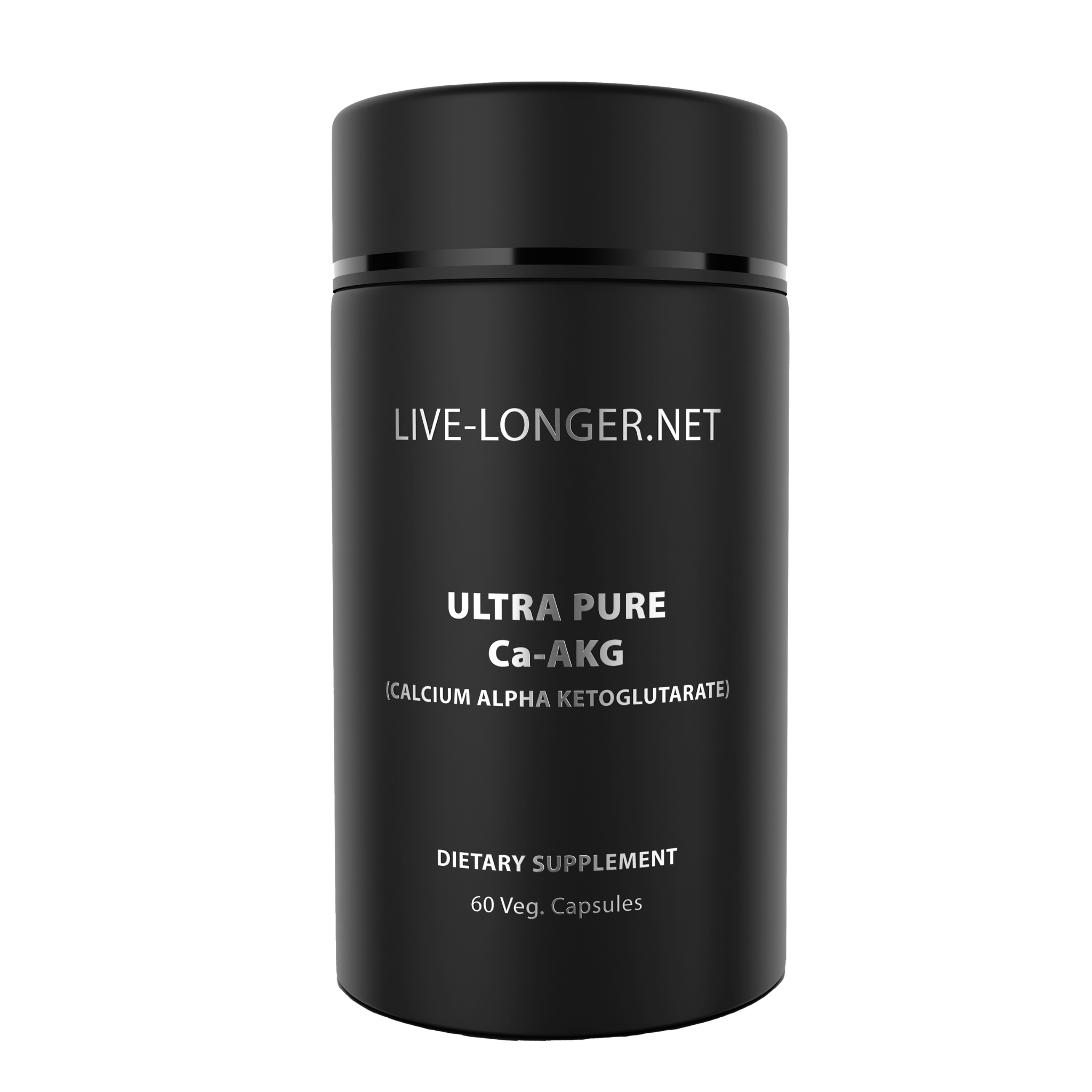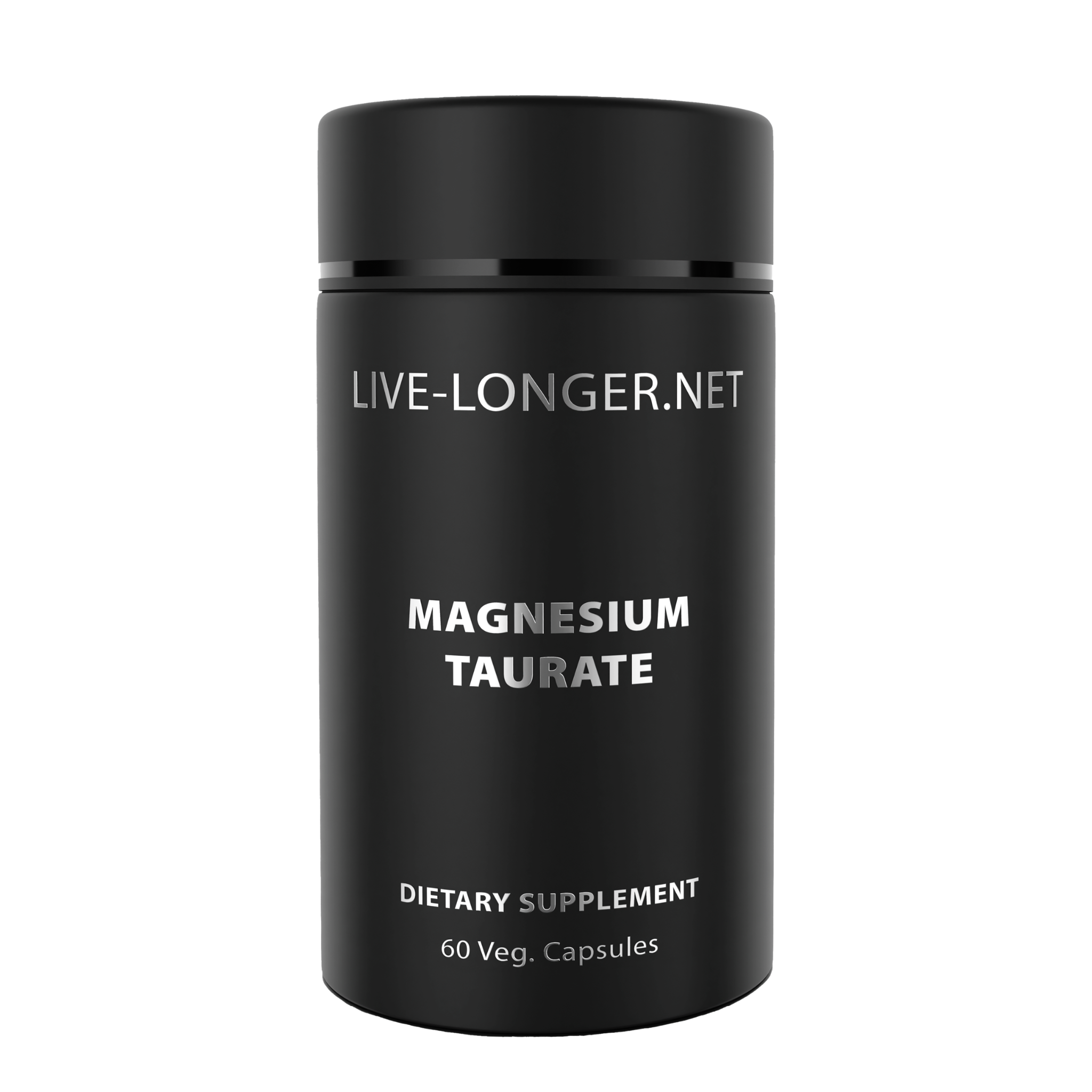Whether it's from arthritis or an injury, joint pain has a knack for slowing us down. If you've ever groaned while standing up or found yourself rubbing your knees after a long day, you're not alone. Millions of people around the world experience joint pain every day (1), but the good news is you don't have to live with it forever.
One of the best ways to support your joints and maintain your mobility is through natural supplements. But with so many options out there, how do you know which is the best supplement for joint pain?
In this article, we'll discuss the science behind some of the most effective joint pain supplements, giving you the facts you need to make an informed choice. From lubricating your joints to reducing inflammation, the right supplement can be a game changer for your overall health—and we'll help you find the best option.
Why Joint Health Is Important and What Can We Do About It?
Most of us don't think much about our joints—until they start to hurt. Your joints, however, keep everything moving smoothly, allowing you to walk, bend, lift, and even dance. Whether you're climbing stairs or reaching for a jar of peanut butter, healthy joints make all the difference.
But when joint pain creeps in, even the simplest tasks can feel like a monumental effort. According to the CDC, nearly one-quarter of adults in the U.S. experience joint pain, particularly in the knees, hips, and lower back (2). And it's not just about discomfort. Joint pain can lead to a sedentary lifestyle, which may open the door to other health issues like obesity, heart disease, and even depression. That's a real domino effect we all want to avoid!
So, why should you care about your joints? Well, maintaining joint health doesn't just keep pain at bay—it helps you stay active, independent, and happy. Joint health is also directly tied to your overall well-being. After all, healthy joints allow you to enjoy life to the fullest, whether you're chasing after grandkids or hitting the gym.
Now, what can we do to keep our joints in tip-top shape?
Here's where supplements come into play. Along with regular exercise and a balanced diet, the right supplement can help reduce inflammation, support cartilage health, and keep your joints lubricated.
Joint Pain: What You Need to Know?
Joint pain isn't just an occasional twinge. For many people, it's a daily reminder that their body is under pressure. But what exactly is joint pain? Well, let's break it down. Joints are the places where two or more bones meet, cushioned by cartilage, lubricated by fluid, and held together by ligaments and tendons. It's a complex system designed to help you move smoothly.
A variety of factors can cause joint pain, but the most common culprits are osteoarthritis, rheumatoid arthritis, and injury.
Osteoarthritis
Osteoarthritis, also known as "wear and tear" arthritis, is the most common type, affecting millions of people worldwide. It occurs when the cartilage that cushions the ends of your bones deteriorates over time, leading to stiffness, pain, and reduced range of motion (3).
Rheumatoid arthritis
Rheumatoid arthritis, on the other hand, is an autoimmune disorder where the immune system mistakenly attacks the lining of the joints, causing painful inflammation (4).
Injuries
And then there are those injuries—whether it's a sports injury or just an unfortunate slip—that can cause joint pain to linger long after the initial damage is done.
But regardless of the cause, the result is the same: pain, stiffness, and a serious decline in mobility. This is where supplements come into play. Rather than reaching for another bottle of pain relievers, you can support your joint health from the inside out with natural remedies. By targeting inflammation, improving joint lubrication, and supporting cartilage repair, the best supplement for joint pain can make a huge difference in how you feel.
Top Supplements for Joint Pain
Below are some of the best supplements for joint pain, backed by science, that contain these key ingredients.
Hyaluronic Acid
Hyaluronic acid is the centerpiece when it comes to joint lubrication. Naturally found in the fluid of your joints, it helps them move smoothly and pain-free. As we age, our natural production of hyaluronic acid decreases, which can lead to stiffness and discomfort, especially in weight-bearing joints like the knees.
Therefore, hyaluronic acid supplements can help improve symptoms of osteoarthritis, especially when taken over the long term. In one 2023 clinical trial, participants who took hyaluronic acid experienced significant improvements in knee joint pain and mobility compared to a placebo group (5).
Ultra-Pure Omega-3
If you're looking for a supplement that reduces inflammation and promotes overall joint health, look no further than Ultra-Pure Omega-3. Omega-3 fatty acids, typically derived from fish oil, are renowned for their ability to fight inflammation throughout the body. And guess what? That includes your joints!
Omega-3 fatty acids can reduce the production of inflammatory chemicals that worsen joint pain, making it a particularly good option for people with rheumatoid arthritis and osteoarthritis.
A 2024 study published in Nutrients found that Omega-3 supplementation significantly reduced stiffness and swelling in joints, allowing participants to improve their range of motion and quality of life (6).
Collagen Peptides
Collagen is the primary protein found in cartilage, the tissue that cushions your joints and allows them to move freely. As we age, collagen levels drop, leading to thinner cartilage and more wear and tear on the joints. The good news is that collagen peptides, a form of hydrolyzed collagen, can help replenish lost collagen, support joint repair, and reduce pain.
A 2024 study published in Environmental Research and Public Health highlighted the positive effects of collagen supplementation on joint health. Participants who took collagen peptides reported significantly less joint pain during physical activities like walking and climbing stairs (7). Whether you're an athlete trying to stay in peak form or someone simply looking for pain relief, collagen peptides can help you stay active and mobile by supporting cartilage regeneration and improving joint elasticity.
Vitamin D3
You've probably heard of Vitamin D3 as the sunshine vitamin, but did you know it plays a major role in joint health? Vitamin D3 helps your body absorb calcium, which is essential for strong bones. Without enough Vitamin D, your bones can become weak, leading to increased stress on your joints—and ultimately, more pain.
People with low levels of Vitamin D are more likely to experience joint pain, particularly in weight-bearing joints like the knees. A 2017 study in the Turkish Journal of Physical Medicine and Rehabilitation found that participants with higher Vitamin D levels had better joint function and less discomfort, especially during movements that stress the knees (8). While Vitamin D3 might not seem like the obvious choice for joint health, it's a crucial piece of the puzzle, ensuring that your bones stay strong and your joints are supported.
How to Choose the Best Supplement for Joint Pain?
How do you know if you're picking something that actually works or just paying for fancy packaging? Don't worry—we've got you covered with some tips to help you make the right choice.
Look for Clinically Proven Ingredients
The first thing you should do when choosing a supplement is to make sure it contains ingredients that are backed by science.
Hyaluronic acid, Omega-3, collagen peptides, and Vitamin D3 all have solid research behind them, proving their effectiveness in reducing joint pain and inflammation. Stick to these ingredients, and you'll be on the right track.
Check Dosage Levels
It's not just about what's in the supplement but also how much of it you're getting. Some brands include tiny amounts of key ingredients just so they can slap them on the label, but they don't provide enough to make a real difference.
Third-Party Testing
Supplements aren't regulated as strictly as medications, so it's important to choose a brand that is third-party tested for purity and potency. This ensures that what's on the label is actually what's in the bottle—no more, no less. Look for seals from testing organizations like USP (United States Pharmacopeia) or NSF International, which are good indicators that the product is trustworthy.
Consult with Your Doctor
Last but not least, it's always a good idea to consult with your healthcare provider before starting any new supplement. They can help you figure out which supplement is best for your individual needs, especially if you have any underlying health conditions or take medications that could interact with the supplement.
Choosing the best supplement for joint pain doesn't have to be complicated. Just stick with clinically supported ingredients, check for appropriate dosages, and make sure the product has been tested for quality. With these tips in mind, you'll be well on your way to better joint health.
The Bottom Line
Remember, supplements work best when combined with healthy lifestyle choices. Regular low-impact exercise, a balanced diet rich in anti-inflammatory foods, and maintaining a healthy weight are all critical to long-term joint health. And, of course, before starting any new supplement regimen, it's always a good idea to talk to your healthcare provider to find the best option for your individual needs.
References
- World Health Organization. Osteoarthritis [Internet]. www.who.int. World Health Organization; 2023. Available from: https://www.who.int/news-room/fact-sheets/detail/osteoarthritis
- Products - Data Briefs - Number 497 - February 2024 [Internet]. www.cdc.gov. 2024. Available from: https://www.cdc.gov/nchs/products/databriefs/db497.htm
- Sen R, Hurley JA. Osteoarthritis [Internet]. National Library of Medicine. StatPearls Publishing; 2023. Available from: https://www.ncbi.nlm.nih.gov/books/NBK482326/
- Chauhan K, Jandu J, Al-Dhahir M. Rheumatoid arthritis [Internet]. PubMed. Treasure Island (FL): StatPearls Publishing; 2023. Available from: https://www.ncbi.nlm.nih.gov/books/NBK441999/
- Sugiyama K, Oe M, Tanaka T, Matsuoka R, Takeda Y, Kimura M, et al. Oral sodium hyaluronate relieves knee discomfort: A 12‑week double‑blinded, placebo‑controlled study. Experimental and Therapeutic Medicine [Internet]. 2023 Dec 15 [cited 2024 Oct 18];27(2). Available from: https://www.spandidos-publications.com/10.3892/etm.2023.12352
- Shawl M, Thangiah Geetha, Burnett D, Babu J. Omega-3 Supplementation and Its Effects on Osteoarthritis. Nutrients [Internet]. 2024 May 28 [cited 2024 Oct 18];16(11):1650–0. Available from: https://www.mdpi.com/2072-6643/16/11/1650
- Schulze C, Schunck M, Zdzieblik D, Steffen Oesser. Impact of Specific Bioactive Collagen Peptides on Joint Discomforts in the Lower Extremity during Daily Activities: A Randomized Controlled Trial. International Journal of Environmental Research and Public Health [Internet]. 2024 May 27 [cited 2024 Oct 18];21(6):687–7. Available from: https://pmc.ncbi.nlm.nih.gov/articles/PMC11203623/









